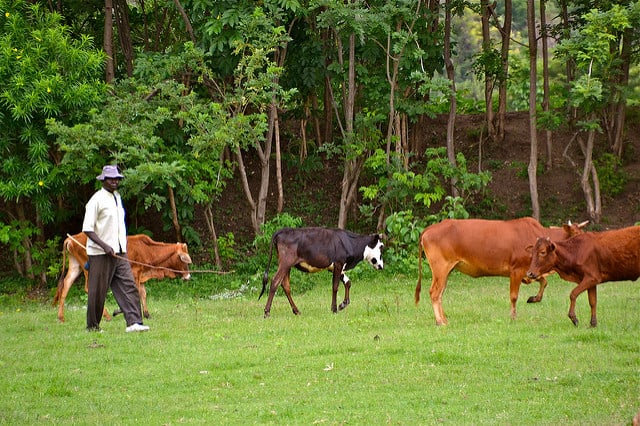5 key challenges facing the agriculture data ecosystem
In adopting an emerging technology like Big Data, there are common issues that every industry must deal with to realize the benefits of a digital transformation.

The 2018 CGIAR Big Data in Agriculture Convention in Nairobi provided an opportunity for agricultural scientists to come together with their counterparts from the world of data science to brainstorm ideas for applying the tools Big Data to agriculture.
In adopting an emerging technology like Big Data, there are common issues that every industry must deal with to realize the benefits of a digital transformation. For the agricultural sector, it is valuable to learn from other sectors that are farther along in the adoption of Big Data analytics, such as the biomedical sector.
During the convention, Dr. Medha Devare from CGIAR spoke with Dr. Jim Ostell, the Director of the National Center for Biotechnology Information (NCBI) within the United States National Institute of Health, to discuss lessons that agricultural researchers can learn from the biomedical community
In this conversation, Dr. Ostell listed five key challenges.
Funding
Collecting and managing Big Data is expensive due to the volume, and variability of the data. Dr. Ostell explained that Big Data for biomedical research was funded through sustained investment from government agencies, which led to the creation of the NCBI.
Investments from the private sector could enable the development of Big Data systems for agriculture, which could also increase the efficiency of applying these data tools across the industry. In order to comply with public funding, however, the private sector must address issues such as data ownership to ensure the integrity of these data system.
Serendipity and Data Science
Dr. Ostell also revealed that investments in Big Data are not immediately guaranteed to result in far-reaching discoveries. On many occasions, discoveries in the biomedical sector have occurred by chance. Due to the serendipitous nature of scientific discoveries, there is a need for Big Data in agriculture to be given enough time and space to develop before the investments pay off.
Industry players have to be ready for massive, long-term investments to facilitate growth. In the meantime, such investments can lead to small wins and incremental developments that will make Big Data more useful for farming applications.
Data Quality
Dr. Ostell contends that the quality of data can be objective and suggests that Big Data in agriculture uses similar standards as those utilized by NCBI. This calls for the primacy of data observations over interpretation. He suggests there is need to formulate and utilize standards across board.
He observes that there might be challenges with doing so especially with the fact that demand for such data is becoming increasingly in demand in the non-scientific community. Standards that facilitate a balance between technically sound and easily consumable data, therefore, have to be utilized.
Interoperability Standards
Interoperability of data is one of the most important issues that have to be addressed in order to make a Big Data system widely useful. One of the primary focus areas for the 2018 CGIAR Big Data Convention is to strengthen data ontologies for agricultural research.
The interview revealed some of the standards that can be utilized to facilitate these ontologies. For instance, CGIAR uses a set of standards known as AGROVOC, which was developed by the UN Food and Agriculture Organization. AGROVOC encourages interoperability because it covers over 35,000 concepts in almost 30 languages.
Tensions in Data Ecosystems
There are various tensions that exist in the Big Data ecosystem for agricultural players to effectively leverage. These tensions include competing commercial interests, data ethics, user privacy, academic credit systems, and data security issues.
All of these tensions have to be countered because they impede the ability of industry players to take advantage of data at their disposal. More importantly, these tensions hamper the sharing of data and limit the ability of data scientists and farmers to utilize Big Data in agriculture to improve their operations.
Atula Owade
Youth in Data media delegate at Platform's 2018 Convention
This is one of a series of blogs written by one of our Youth in Data media delegates who participated in the 2nd Big Data in Agriculture Convention in Nairobi, Kenya on 3-5 October 2018.





Useful Information! Thank you for a thoughtful overview of such a wonderful challenge of agriculture data ecosystem, I would like to thank you for putting the time together to construct this article. It gave me a lot of information that I really enjoyed reading.
More information about Big Data Analytics visit us: http://bit.ly/2qjw5d7